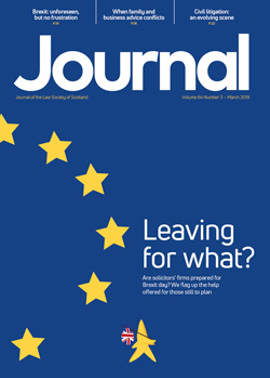Profile: Lord Mackay of Clashfern
What motivated you to study law?
I had taken a first class honours degree in Mathematics and Natural Philosophy and obtained a scholarship in that subject at Trinity College, Cambridge in 1948. I received the papers for [National Service] call-up but they required me to appear before the Joint Recruiting Board. At that time the period for compulsory service was 18 months. The Board asked me to serve as a lecturer in mathematics for two years, which I did, and then went on to Trinity where I obtained a BA in Parts II and III of the mathematical Tripos (three or four year undergraduate course at Cambridge). At the end of that I concluded that a lifetime in academic mathematics was not for me.
Can you tell us what you consider to be the highlights of your career?
First devilling for W R Grieve, being called to the bar, taking silk, becoming sheriff principal, Vice Dean then Dean, Lord Advocate, then a judge of the Supreme Courts of Scotland, then a Lord of Appeal in Ordinary and finally the Lord Chancellor of Great Britain.
Looking back, what do you see as the most significant changes or milestones affecting the Scottish legal profession since you started out?
The formality of the life of an advocate gradually reduced, the development of solicitor advocates, the increased degree of specialisation, and with devolution the increased interest taken by government in justice and the legal profession.
What does honorary membership of the Law Society of Scotland mean to you?
My life in the law has been, as an advocate, always dependent on solicitors for my livelihood. It was a tremendous thrill when the professional body of solicitors in Scotland recognised me in this way and I cherish that thrill still.
What’s your top tip for new lawyers?
Watch and learn from your seniors.
If you could ensure one change for the future of the Scottish legal profession, what would that be?
That its importance in the life and reputation of Scotland should be generally recognised here and abroad.
What (apart from Brexit) keeps you most busy in the House of Lords?
Brexit work dominates, but I am concerned also with health matters, legal representation at inquests, freedom of religion across the world, education and other matters that arise.
In this issue
- How will Brexit affect my mother-in-law?
- Settling the debate on sequestration
- Taking wellbeing seriously
- How will personal data continue to flow after Brexit?
- Buildmark, and a little extra help for NHBC
- Reading for pleasure
- Opinion: Laurie Anderson
- Book reviews
- Profile: Lord Mackay of Clashfern
- President's column
- People on the move
- Is your legal software ready to remain compliant in 2019?
- What's the deal?
- Ready to leave?
- A tapering opportunity
- Brexit: no dealbreaker either
- The business of divorce
- Trailblazing 12
- Cohabitants: rebalancing the law
- Litigation: an evolving scene
- Chain transactions
- When delay is not fatal
- Data protection – deal or no-deal?
- Two cases and an order
- Reshaping trade mark law
- When the wheels come off
- Parentage or privacy?
- Access right, right of access or right of way?
- Team of one
- Public policy highlights
- OPG update
- Housing specialism added to accreditation list
- At the boundary's edge
- Keep the dual role
- Executry and trust accounting: new guidance
- Moving nightmares
- Accredited paralegal update
- Sign up for conference
- Accredited Paralegal Committee profile
- Ask Ash






